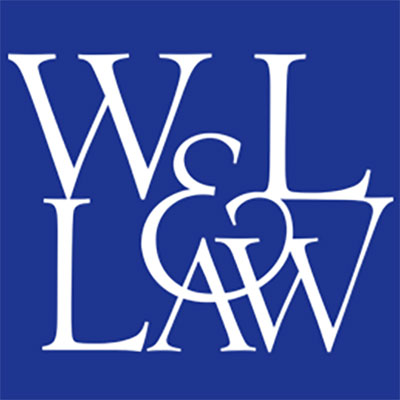Moving from a rule-based approach to a functional understanding in Plain Legal Language
DOI:
https://doi.org/10.56498/1212024613Keywords:
plain language, plain legal language, writing, legal education, language policy, writing pedagogy, systemic functional linguisticsAbstract
In the past years, different Hispanic countries have witnessed a rise in Plain Language
(Lenguaje Claro) initiatives by public institutions, including the publication of Plain Language
guides. Since these types of actions seek to influence how a linguistic community uses language
through training, regulations, teaching materials, etc., it is useful to evaluate them in light of the
most recent findings in Applied Linguistics and Writing Pedagogy. In this article, we analyze a
corpus of Plain Legal Language guides in Spanish to identify patterns in the understanding of
clarity within them. Results show that these guides differ very little from one another and that they
have tended to replicate a series of abstract rules focused on grammatical accuracy and style
correctness ("write short sentences," "avoid the passive voice," "respect the subject, verb, object
order") that ended up becoming universal principles for clarity.
This current form-focused approach fails to grasp that clarity is not achieved by
mechanically following form-centered rules at the sentence level. Moreover, it contradicts the most
recent findings in writing pedagogy and may even be what causes so much resistance in certain
professionals. Thus, we draw on the theoretical principles of Myhill et al. (2020) writing
instruction proposal to offer new directions on how to approach plain language teaching and to
2
design impactful plain language policies and resources. We argue that plain language should even
be a part of general legal writing instruction, but for that to happen, we need to think of plain
language, not as a set of rules to be followed, but as a set of literacy skills that are useful for any
legal practitioner.
References
Arnoux, E., & Lauría, D. (2022). La prescripción en los discursos sobre la lengua (Prescription in
Discourses on Language). In Estudios del discurso / The Routledge Handbook of Spanish
Language Discourse Studies (p. 14). Routledge.
Da Cunha, I., & Escobar, M. Á. (2021). Recomendaciones sobre lenguaje claro en español en el
ámbito jurídico-administrativo: Análisis y clasificación. Pragmalingüística, 29, 129–148.
http://dx.doi.org/10.25267/Pragmalinguistica.2021.i29.07
Duijnhouwer, H. (2010). Feedback Effects on Students’ Writing Motivation, Process, and
Performance. Ipskamp Drukkers,
Guerra Lyons, J. D., & Herrera Bonilla, M. (2017). El compromiso en la Teoría de la Valoración:
conceptos y aplicaciones pedagógicas. Forma y Función, 30(2), 51–69.
Halliday, M., & Matthiesen, C. (2014). Halliday’s Introduction to Functional Grammar (4th ed.).
Routledge.
Lefstein, A. (2009). Rhetorical grammar and the grammar of schooling: Teaching powerful verbs
in the English national literacy strategy. Linguistics and Education, 20(4), 378–400.
https://doi.org/10.1016/j.linged.2009.04.002
Marazzato Sparano, R. (2021). Lenguaje claro en el siglo XXI: panorama general y propuesta de
aplicación al proceso de traducción y corrección. Revista Internacional de Lenguas
Extranjeras, 15, 1–35. https://doi.org/10.17345/rile15.3150
Myhill, D. (2011). The Ordeal of Deliberate Choice’: Metalinguistic Development in Secondary
Writers. In V. Berninger (Ed.), Past, present, and future contributions of cognitive writing
research to cognitive psychology (pp. 247–274). Psychology Press/Taylor Francis Group.
Myhill, D., & Watson, A. (2014). The role of grammar in the writing curriculum: A review of the
literature. Child Language Teaching and Therapy, 1(30), 41–62.
https://doi.org/10.1177/0265659013514070
Myhill, D., Watson, A., & Newman, R. (2020). Thinking differently about grammar and
metalinguistic understanding in writing. Bellaterra Journal of Teaching & Learning
Language & Literature, 2(13), 1–19. https://doi.org/10.5565/rev/jtl3.870
Poblete, C. A. (2018). Una mirada al uso de lenguaje claro en el ámbito judicial latinoamericano.
Revista de Llengua i Dret, 69, 119–138.
Turner, J. (1999). Academic Literacy and the Discourse of Transparency. In J. Turner, B. Street,
& J. Carys (Eds.), Students Writing in the University (pp. 149–160). John Benjamins B.V.
Downloads
Published
Issue
Section
License
Copyright (c) 2024 Authors retain copyright and grant the journal right of first publication with the work simultaneously licensed under a Creative Commons Attribution (CC-BY) 4.0 License that allows others to share the work with an acknowledgment of the work’s authorship and initial publication in this journal.

This work is licensed under a Creative Commons Attribution 4.0 International License.













